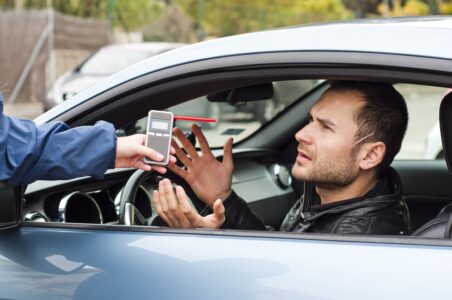Many people believe that if you are injured in an accident caused by a drunk driver, it will be easy to prove your case in court. Unfortunately, that is often not the case. Not only can your claim be more difficult due to the defendant simultaneously undergoing the criminal process for alcohol-related charges stemming from the accident, but you’re also likely to face an insurer who doesn’t want to compensate you for your expenses and impacts, even if their insured was convicted of a drunk driving charge. Here is a look at how to collect evidence after a drunk driving car accident that can help you win your case.
5 Types of Evidence Generally Available After a Drunk Driving Car Accident (and How to Get It)
While there are several potential difficulties to a drunk driving case, a car accident attorney can provide guidance to you and there are several types of evidence that can potentially help you, not the least of which is a police report stating that the crash involved a drunk driver, but also chemical testing performed on the driver as a result of the criminal process.
 Your Observations or the Observations of Eye Witnesses
Your Observations or the Observations of Eye Witnesses
When an accident occurs involving bodily injury, death, or extensive vehicle damage, most states require the accident to be reported to the police or the state’s department of transportation. When the police investigate an accident, they will almost always file an official report. Generally, the drivers involved are also required to exchange information if they are able, including name, phone number, and insurance information. This can happen while the drivers wait for the police to arrive, or the police will gather that information as they investigate the accident.
Explaining Your Suspicions to the Investigating Officer
When investigating a drunk driving car accident, the responding police officer will collect the necessary contact and insurance information from all drivers and interview everyone involved to get as accurate a picture as possible of how the accident occurred.
If you saw signs of the other driver’s intoxication, tell the officer. Some observations to point out during that interview include the at-fault driver slurring their words when speaking, appearing confused, the smell of alcohol on their breath or clothes, or the presence of an alcohol bottle in or near the vehicle at the scene.
The police officer can check out these observations during their investigation and place their findings in the official police report.
The Police Report
A car accident police report generally contains important information about the accident, including:
- Details about the people and property involved in the accident, including identifying information about those involved, as well as any witnesses to the accident
- The approximate time, date, and location of the accident
- A diagram of the accident, including the descriptions of each vehicle and the damage sustained, the point of the collision, and the path the vehicles traveled immediately after the collision occurred.
- Any arrests and citations issued at the accident and the investigating officer’s determination of fault
How to Obtain a Police Report
There are usually multiple ways to obtain a police report, with the simplest way being to have your car accident attorney obtain the report on your behalf. Other options include requesting the report from the law enforcement officer or their agency in person, on the phone, or online.
In many states, such as New York, the state department of motor vehicles (DMV) can also supply a copy of the police report after it has been submitted to the department by a local law enforcement agency.
Surveillance Video Footage
If your accident occurred in an area with many businesses or residences, surveillance footage is likely available from one of those entities.
While surveillance footage and traffic cam videos cannot prove a driver’s intoxication, they can if aimed at the area where the accident occurred show who had the right-of-way at an intersection, whether someone failed to stop or was driving on the wrong side of the road, which are all behaviors associated with drunk driving. This can bolster the other evidence that the claimant and their attorney collected.
How to Obtain Surveillance Footage
If you believe surveillance video captured footage of your accident, inform your car accident attorney as soon as possible. Software often overwrites these videos in a short time, and your attorney will need to file a motion in court to ensure that this video evidence is secure and available to use when building your case.
Your lawyer can also ask neighboring businesses and residents if they had surveillance cameras at the time of the accident. Again, if you locate individuals or entities with video evidence, let your attorney know so they can obtain and preserve the evidence as soon as possible.
The Results of Chemical Tests
Chemical tests such as tests of the blood, breath, saliva, or urine of an intoxicated person to determine the level of their impairment are generally performed after a DWI arrest has been made. However, the defendant can refuse these tests and still be convicted of a DWI in many cases, based on the investigating officer’s observations and witness interview.
Most states consider obtaining a driver’s license as implied consent to drug or alcohol testing after a driver has been stopped or has been in an accident and is suspected of impaired or intoxicated driving. Most states will revoke the licenses of anyone who refuses to submit to a chemical test after the accident, even if the court does not convict them of an alcohol-related charge.
The police report or the discovery process can prove whether the driver submitted to the test or refused, and your lawyer can use that evidence in your case.
Obtaining Chemical Test Reports and Other Items Through Discovery
According to the American Bar Association, discovery is the formal exchange of information between parties to a claim about the witnesses and evidence they will present at trial. Discovery prevents a “trial by ambush,” where the opposing party has no way of knowing what evidence they will confront and, therefore, no way to prepare an adequate answer.
Some evidence that a drunk driving accident lawyer can obtain to assist a claimant includes:
- The results of chemical tests and arresting officer’s observations of the driver at the scene.
- Information about past alcohol-related convictions that the driver has had. It should be noted that information about the defendant’s driving history is generally only permissible if it is needed to prove that the defendant lied about their previous driving history in a deposition or when contradicting the defendant’s testimony on the stand.
- Prior cancellations of the defendant’s auto insurance indicate negligence or a lack of truthfulness during testimony.
A Criminal Conviction
A DWI accident case can proceed through separate criminal and civil court processes.
Seeking compensation through a personal injury claim is the civil process. This process features a lower burden of proof, with guilt determined by the preponderance of the evidence, which means the accident more likely than not happened as you said it did. The civil process does not result in incarceration or parole. It merely determines how much compensation the defendant owes you.
The criminal process involves the arrest or citation of the at-fault driver at the scene on suspicion of driving while intoxicated, resulting in bodily injury. This process involves interviewing the driver, performing a roadside (field) sobriety test, chemical testing, and a series of legal back-and-forth between the at-fault driver’s defense attorney and the prosecutor.
While criminal and civil cases go through different processes, you may attend and obtain information about the criminal proceedings and might even testify in both.
Why You Are Involved in the Criminal Case
As explained by the Office for Victims of Crime Training and Technical Assistance Center (VictimLaw), in past decades, victims had very few rights to know about or participate in the criminal process for the defendant whose illegal acts caused their injury.
However, in recent years, every state in the nation has built into their laws a core group of rights for crime victims, including:
- The right to be treated with dignity, fairness, and respect
- The right to attend all criminal justice proceedings that pertain to the crime that injured them, including the offender’s trial, sentencing, and parole hearing. It should be noted that if the victim is also a witness to the crime, they will often be excluded (sequestered) during the testimony from other witnesses.
- The right to be heard at these proceedings and to present a victim impact statement
- The right to protection from intimidation and harassment by the defendant
- The right to restitution from the offender. The victims of crimes are often eligible for restitution from the defendant upon conviction. Each state has a cap on the compensation a victim can receive in criminal cases.
These are just a few of the rights that victims have after someone has injured them during the commission of a crime. In many states, a victim’s right to be notified of and attend court proceedings depends on whether the crime was charged as a felony or a misdemeanor. However, how the crime is charged depends on several factors, such as the injuries that were incurred as a result of the driver’s impairment, the level of their impairment, or even whether the driver has been convicted of an alcohol offense before.
The criminal proceedings can help your civil claim, as you can use the evidence that the prosecutor used to convict the driver to prove liability for your accident. This includes information such as the results of field sobriety tests, chemical tests used to determine blood alcohol content, and even statements the driver made to the investigator at the scene.
If DUI Accident Hurt You, an Attorney Can Help You
If you’ve been injured in an accident caused by a drunk driver, having an experienced car accident lawyer assist you through the claims process is important to obtaining the compensation you need.
Not only will your legal team work to gather the evidence needed to prove your claim, but it can also:

- Evaluate your case, based on the availability of insurance, the previous driving history of the at-fault party, medical treatment and other costs incurred by you as a result of your injury, and the severity and permanence of the injury you sustained.
- Gather medical documentation to show the costs and impacts of your injury.
- Negotiate with the at-fault party’s insurance provider to obtain a settlement that fairly compensates you for your injury’s financial and psychological impacts.
- File your lawsuit in court and participating in the pre-trial process can include filing and responding to motions, jury selection, deposing witnesses, and attending hearings on your behalf. If the claim is still unresolved by your trial date, your attorney will also be tasked with telling your story to the judge or jury.
- Collect your compensation from a negotiated settlement or award
The personal injury claims process requires completing many difficult tasks, so hire an experienced attorney to increase the likelihood of success with your claim.
Were you injured in a drunk driving accident? Connect with our law firm to answer your questions and help you pursue the compensation you deserve.
